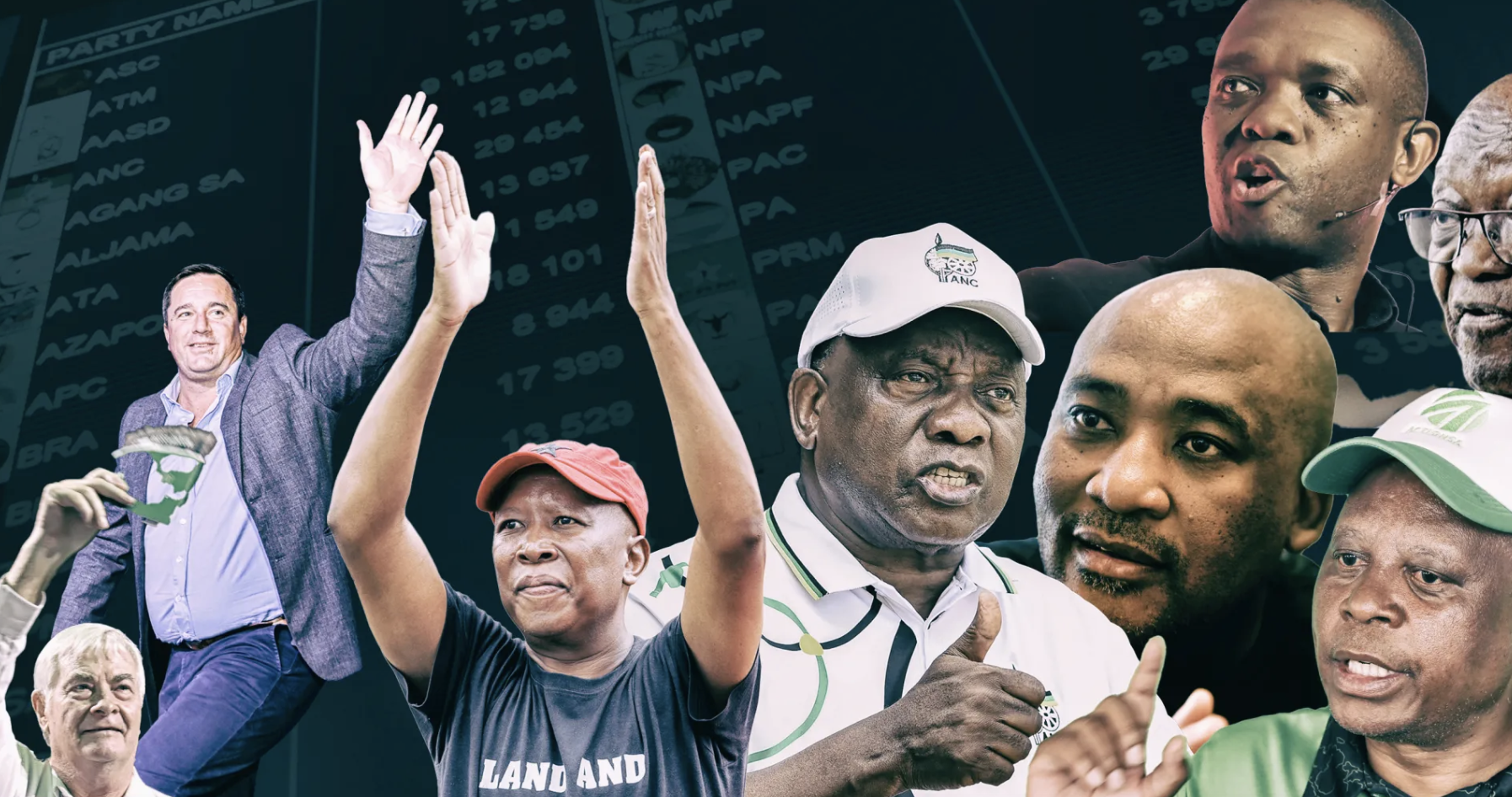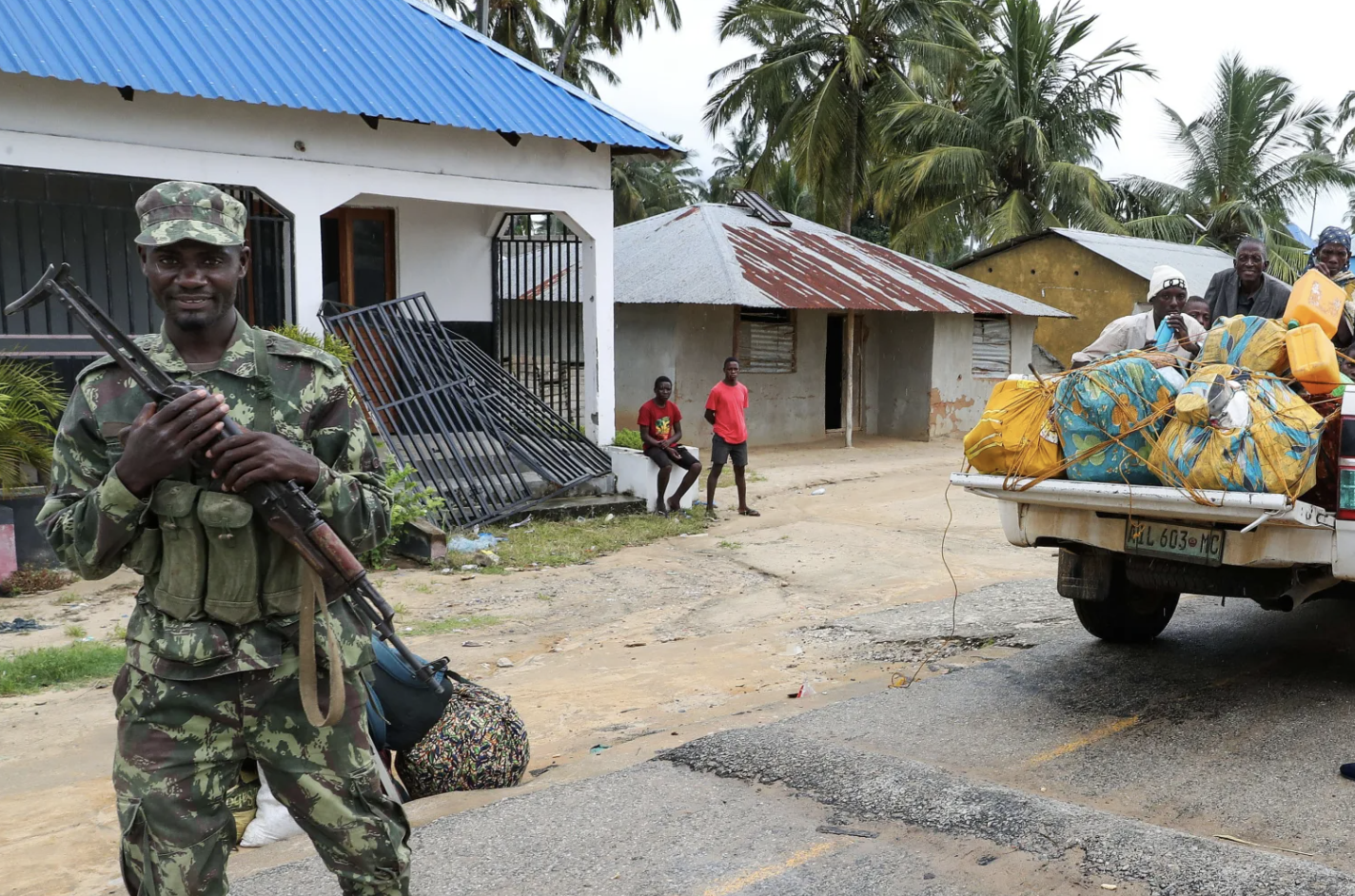News
Written in the Stars or Writing on the Wall? Assessing SA’s Embattled Start-Up Parties
Most South Africans appear to be choosing to stick with established political parties, with newer arrivals on the national stage enjoying little support ahead of national and provincial elections in May this year.

Director, The Brenthurst Foundation

Research Director, The Brenthurst Foundation

A survey conducted for the Brenthurst Foundation in February has four parties with 10% or more — the ANC (39%), DA (27%), MK Party (13%) and EFF (10%). While the MK Party was recently created, it is an offshoot of the ANC and has the highly recognised former president Jacob Zuma as its leading public figure.
Beyond this “top four” are a plethora of parties which the Brenthurst Foundation survey shows are currently attracting less than 10% of the vote. The largest of these is ActionSA with a projected 2% of the national vote, and the IFP at 1.9%.
This is the first time that ActionSA is contesting a national election and it could still surprise on the upside.
The IFP, which usually polls significantly higher, is a victim of the MK Party, which has diluted its support in KwaZulu-Natal. It is possible that the IFP could claw some of this back, particularly if it is to focus on KZN where the majority of voters have moved away from the ANC.
ActionSA appears to have been hurt by the entry of Mmusi Maimane’s Bosa party, the best performing of the new entrants, which polled 1.7% of the vote.
ActionSA’s Herman Mashaba and Maimane are former senior DA leaders who quit to form their own parties.
ActionSA has been stung by the polling numbers, saying it will be “taking action against South Africa’s unregulated polling industry” and claiming that the Brenthurst Foundation’s numbers for the MK Party were deliberately high because “it is helpful to paint a narrative of DA growth and the useful stick to whip out the vote against the threat of a growing left alliance”.
Curiously, ActionSA’s polls before the September 2021 municipal elections had the party’s support at 31.7%, higher than that of the ANC. In the event, ActionSA achieved around 16%.
Shooting the messenger is a cliched response, but is not going to change the numbers. Equally, even though you might have made your recent political career bashing the DA, it is today your alliance partner in the Multi-Party Charter coalition. This demands a different tack, and target, less directed at the DA than the common political foes in the ANC, EFF and MK.
Rather than focus on conspiracy theories, ActionSA should ask itself what it can do to remedy its low impact over the next two months. There is still time to turn things around.
Also with 1.7% of the vote is Gayton McKenzie’s Patriotic Alliance, which has shown strong support in certain local government contests but appears to lack national impact.
The lack of traction among smaller parties could also be due to the sheer number that have entered the scene.
Roger Jardine’s Change Starts Now party has withdrawn from the election altogether after it became plain that it had failed to ignite the popular imagination in such a crowded field.
The old ANC off-shoots, Cope and the UDM, have also failed to register on the election radar.
Why are these parties faring so badly?
Part of the problem could be that they are all competing over the same pool of voters who are looking for an “alternative opposition party”.
Their messages are difficult to distinguish from one another and from the leading opposition party, the DA.
Outside of Jacob Zuma, personality seems to be insufficient as a vote-getter compared to the grinding detail of a combination of tireless footwork and formidable party machinery.
While the parties differ on finer details, they all favour economic reform, accountable governance, a strong crackdown on corruption and a new start for the country.
Comparative youth (Jacob Zuma is 81, the same as US President Joe Biden; Cyril Ramaphosa is 71) seems to matter less to SA voters than some parties had hoped, not least given that nearly two-thirds of under-24s in SA are unemployed.
Voters are looking at the governance record of parties. The DA-governed Western Cape and Cape Town are rated the best-governed province and city by voters by some margin, suggesting that voting patterns might finally be shifting away from traditional loyalties to track record.
It is significant that, of the smaller parties, the best performing are ActionSA and the IFP which have governance track records.
In Gauteng, the home province of ActionSA’s leader and the former DA mayor of Johannesburg, Herman Mashaba, the party registers 5.3% of the vote. Maimane’s Bosa is not far behind with 4.7% of the vote.
All of this could, of course, change.
South Africa’s politics is highly fluid, as the sudden rise of the MK Party has demonstrated.
In addition, many of the smaller parties are relatively well-funded and could gain votes in the final two months as they roll out their election campaigns and double-down on their areas of historically strongest support, including ActionSA in Gauteng and the IFP in northern KZN.
But all the signs are that the confusing field of multiple new entrants and old offshoots has not set the public imagination alight.
This article originally appeared in the Daily Maverick
Photo: Daily Maverick


